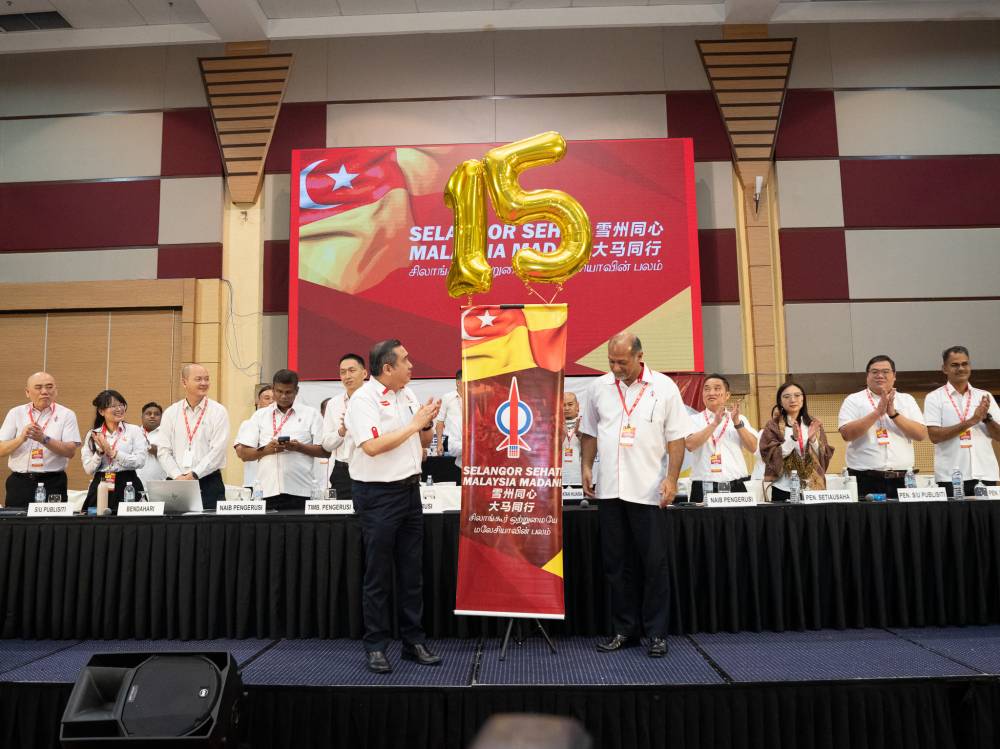DAP wiser to stay quiet on Najib sentence cut, experts analyse
Staying mum pays off?

SHAH ALAM - Experts suggest that maintaining silence is the most prudent strategy for DAP regarding the party's abstention from commenting on former prime minister Datuk Seri Najib Razak's pardon decision.
Political analyst James Chin discussed the significance of DAP's restraint in commenting on Najib's pardon board decision, highlighting the delicate balance DAP must maintain in navigating its role within the Unity Government.
"Silence is the best option for DAP. Speaking out risks destabilising the Unity Government.
"It's easier to manage your own supporters than to contend with other parties in the coalition.
"Malaysians have short memories; they move on quickly," he told Sinar Daily.
When questioned about the potential comparison of DAP to MCA due to their silence, James drew parallels with MCA and stressed the importance of DAP not being perceived as a subservient party.
"MCA earned its reputation over 60 years under Barisan Nasional; it will take time for DAP to establish a similar reputation.
"However, the crucial thing for DAP is not to be seen as submissive to other parties.
"One reason MCA was viewed as subservient was because they yielded to Umno.
"DAP can properly represent the interests of non-Malays; they should not be branded with the same label as MCA," he said.
Meanwhile, Universiti Teknologi Mara (UiTM) political analyst Dr Abdul Aziz Azizam echoed James's sentiments, highlighting DAP's complexities.
"We anticipate reactions from DAP; however, their silence can be interpreted as respect for the decision of the Yang di-Pertuan Agong.
"It's riskier for them to voice dissent and potentially offend Umno, jeopardising government stability," he said.
He also noted a subtle shift in dynamics concerning another contentious issue involving DAP.
"From this situation, we see that the controversial issue brought up by DAP, which is the recognition of Kampung Baru as a Unesco heritage site, has received less pressure from Umno, as if it were a reciprocation for the current situation," he added.
Adding further commentary, political analyst Dr Oh Ei Sun said that DAP is now a ruling coalition member. Consequently, they must share political responsibilities with other coalition partners.
"This means that if they openly disagreed with the stance of the coalition government, including on pardons, they would have to withdraw from the government, in which case the government would immediately collapse.
"That’s why they must be cautious in publicly voicing their opinions.
"With MCA, the issue is not solely about silence, but also the perception that it prioritises its own interests over those of the community," he said.
The Kuala Lumpur High Court originally sentenced Najib to 12 years in prison over the RM42 million SRC International corruption case. He was also fined RM210 million.
His conviction and punishments were subsequently upheld in the Court of Appeal and the Federal Court.
The Pardons Board however announced the sentence reduction which was agreed upon when it met last month.
While the reduced sentence places his release date in August 2028, experts said that Najib could be released earlier on ‘good behaviour’ in August 2026 after serving two-thirds of his sentence.
The decision has faced criticism from various quarters, including DAP's non-Cabinet member Tony Pua who made an alleged derogatory statement towards the Royal institution regarding the decision to reduce the prison sentence and fine.











